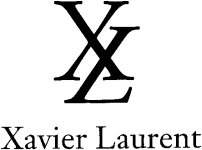CLASS 46
Now in its twelfth year, Class 46 is dedicated to European trade mark law and practice. This weblog is written by a team of enthusiasts who want to spread the word and share their thoughts with others.
Want to receive Class 46 by email?
Click here subscribe for free.
Click here subscribe for free.
Who we all are...
WEDNESDAY, 1 DECEMBER 2010
Poland: XAVIER LAURENT - the story continues
 This is the continuation of a story described in "Poland: personal circumstances in trade mark registration". HOUSE Spółka z o.o decided to file a cassation complaint. The Supreme Administrative Court in its judgment of 23 September 2010 case file II GSK 779/09 dismissed the case. The Court agreed with the VAC that ICT had the status of "owner" of the trade mark within the meaning of Article 161 of the Industrial Property Law in connection with Article 6 septies of the Paris Convention, although ICT at the date of the application of the questioned trade mark (XAVIER LAURENT R-92393), i.e. on 11 March 1994, was not entitled to XL XAVIER LAURENT IR-763083 under Article 161 of the IPL, since the registration has been granted on 23 September 1999, and the protection of international registration lasts until 10 July 2001. The SAC ruled that the provisions of Article 8(1) of the TMA concerns the substantive conditions of registration of the mark (i.e. it's not allowed to register a sign, which is contrary to the law or the rules of social coexistence) and it was referred to in Article 29 of TMA as a basis for invalidation of the registration of the trade mark, if the conditions provided in Article 8(1) were met. However, Article 161(1) and (2) of the IPL concerns only a request (claim) for invalidation of the right of protection.
This is the continuation of a story described in "Poland: personal circumstances in trade mark registration". HOUSE Spółka z o.o decided to file a cassation complaint. The Supreme Administrative Court in its judgment of 23 September 2010 case file II GSK 779/09 dismissed the case. The Court agreed with the VAC that ICT had the status of "owner" of the trade mark within the meaning of Article 161 of the Industrial Property Law in connection with Article 6 septies of the Paris Convention, although ICT at the date of the application of the questioned trade mark (XAVIER LAURENT R-92393), i.e. on 11 March 1994, was not entitled to XL XAVIER LAURENT IR-763083 under Article 161 of the IPL, since the registration has been granted on 23 September 1999, and the protection of international registration lasts until 10 July 2001. The SAC ruled that the provisions of Article 8(1) of the TMA concerns the substantive conditions of registration of the mark (i.e. it's not allowed to register a sign, which is contrary to the law or the rules of social coexistence) and it was referred to in Article 29 of TMA as a basis for invalidation of the registration of the trade mark, if the conditions provided in Article 8(1) were met. However, Article 161(1) and (2) of the IPL concerns only a request (claim) for invalidation of the right of protection.
Tags: Article 6septies, Paris Convention, Polish Supreme Administrative Court, bad faith, trade mark invalidation,


 Sharing on Social Media? Use the link below...
Sharing on Social Media? Use the link below...
Perm-A-Link: https://www.marques.org/blogs/class46?XID=BHA2135
Poland: XAVIER LAURENT - the story continues
Article 161 1. To the extent as follows from an international agreement, where a trademark has been applied for protection by and on behalf of, or the right of protection has been granted for, an agent or a representative of the person enjoying the exclusive right to use that trademark in another country, that person may, if the agent or representative acted without that person’s consent, demand that the protection granting proceeding be discontinued or the right of protection revoked. He may also demand that the right of protection be granted on his behalf, or the right already granted transferred to him.It was obvious for the Court that if the conditions mentioned in the Article 161(2) of the IPL were met, then there is no need to study the substantive grounds for invalidation of the registration, as referred to in Article 8(1) in connection with Article 29 of the TMA. It is in accordance with Article 161(2) of the IPL that the request for the invalidation or transfer of rights cannot occur if, for a period of five consecutive years, the holder referred to in paragraph 1, being aware of such use, did not object to the use of a registered trade mark. Posted by: Tomasz Rychlicki @ 16.082. The right may not be demanded to be revoked or transferred, where the entitled person referred to in paragraph (1) has acquiesced, for a period of five successive years, in the use of the registered trademark while being aware of such use.
Tags: Article 6septies, Paris Convention, Polish Supreme Administrative Court, bad faith, trade mark invalidation,


 Sharing on Social Media? Use the link below...
Sharing on Social Media? Use the link below...Perm-A-Link: https://www.marques.org/blogs/class46?XID=BHA2135
Reader Comments: 0
Post a Comment
MARQUES does not guarantee the accuracy of the information in this blog. The views are those of the individual contributors and do not necessarily reflect those of MARQUES. Seek professional advice before action on any information included here.
The Class 46 Archive

